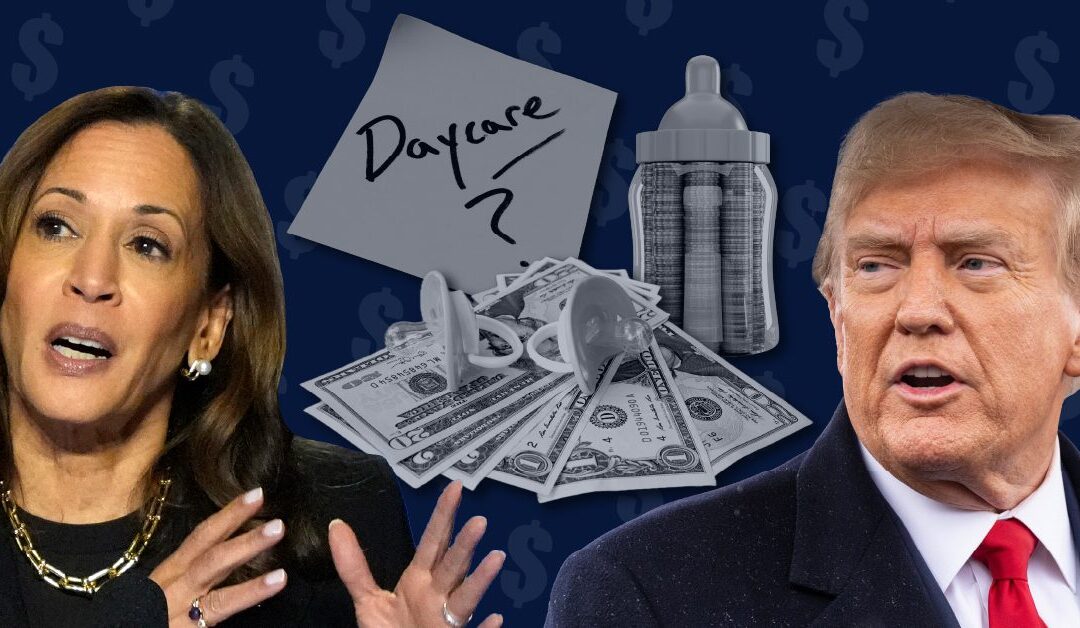
Democratic presidential nominee Vice President Kamala Harris and Democratic vice presidential candidate Minnesota Gov. Tim Walz appear at the 2024 Democratic National Convention, Aug. 22, 2024 in Chicago. (AP Photo/Paul Sancya)
After years of a worsening housing crisis in Nevada, Kamala Harris’ proposals seek to create three million homes by 2028, provide down payment assistance to first-time home buyers, and crack down on price fixing among corporate landlords.
Since launching her campaign, Democratic presidential nominee Kamala Harris has promised to focus on economic opportunity and rebuilding the middle class if elected president in November.
One way she’s aiming to do this is by addressing the current housing crisis in Nevada and the United States.
Nationally, there is a shortage of more than seven million affordable homes for the 10.8 million-plus extremely low-income families in the US. Seventy percent of these families are severely cost-burdened, meaning they spend more than half of their income on rent. There’s also no state or county in the country where a renter working full-time at minimum wage can afford a two-bedroom apartment.
Additionally, mortgage rates are hovering above 6% and with steadily rising home prices and the lowest inventory of homes for sale in over a decade, the housing market is increasingly pricing out working and middle-class families.
In Sept. 2020, the median home sale price in Nevada was $344,900. As of July 2024, that figure had risen to $467,400, a 35% increase, according to Redfin. In Las Vegas, the average cost of rent is $1,457 per month, up over 30% from the beginning of the pandemic. These figures are in line with a national trend that’s shown rising home and rent prices since the beginning of the pandemic.
Here’s what Harris has proposed to address these issues:
Expanded tax credits and funding for first-time home buyers
Harris has promised to increase the available housing supply in the US by expanding the Low-Income Housing Tax Credit, which provides incentives for both state and local investment in housing.
Harris wants to create a $40 billion tax credit that would make building new housing more economically practical for builders. The goal is to encourage rapid building of affordable housing in order to close the gap between housing needed and housing currently available as well as support “innovative” methods of construction financing.
This funding would also make certain federal lands eligible to be repurposed for new housing developments.
To cut down on red tape and to bring down housing costs, Harris’ plan also calls for streamlining the permit approval and review process.
“In some places, it is too difficult to build, and it is driving prices up,” Harris said during a recent campaign event in North Carolina.
Collectively, these policy proposals seek to create three million homes by 2028.
If elected, the Harris-Walz campaign has also vowed to create a plan to provide lower-income first-time homebuyers with up to $25,000 in down payment support.
“We know a strong middle class has always been critical to America’s success. And building that middle class will be a defining goal of my presidency. This is personal for me. The middle class is where I come from,” Harris said in her speech at the Democratic National Convention (DNC) last month.
“We will end America’s housing shortage,” Harris added during her DNC address, a declaration that was met with thunderous applause from delegates.
These plans would need congressional approval, meaning if Republicans retain their House majority or win back control of the Senate, they could block Harris’ efforts to address the housing crisis.
Bringing down rent costs
Harris is also proposing two acts to address the rising cost of rent and lower tenants’ costs.
She has endorsed the Stop Predatory Investing Act, which would remove key tax benefits for housing investors who acquire a large number of single-family rental homes.
This proposal comes in light of Wall Street buying up entire neighborhood blocks and corporations purchasing large swaths of single-family homes. In fact, according to MetLife Investment Management, institutional investors may control 40% of US single-family rental homes by 2030.
The Preventing the Algorithmic Facilitation of Rental Housing Cartels Act, on the other hand, seeks to crack down on rent-setting software that “enables price-fixing among corporate landlords.”
Harris’ proposal comes as this sort of price-fixing has become more and more common. Just last week, the Justice Department, along with the attorneys general of eight states, filed a civil antitrust lawsuit against RealPage Inc., a property management software company, for its “unlawful scheme to decrease competition among landlords in apartment pricing and to monopolize the market for commercial revenue management software that landlords use to price apartments.”
The complaint accuses the company of taking over the market for price-setting software, “effectively monopolizing it,” and ultimately helping landlords jack up prices on tenants.
According to a report from the Joint Center for Housing Studies at Harvard, a record 22.4 million American households now spend at least 30% of their income on rent.
Harris has also backed a proposal from President Biden, who in July called on Congress to pass a law that would withdraw tax credits from landlords who raise rent by more than 5% annually. If passed, the plan would apply to landlords with at least 50 units in their portfolio, meaning that overall, 20 million units nationwide would be affected, according to the White House.
That’s about half of all rentals in the United States.
The proposal was praised by housing advocates.
Shamus Roller, the executive director of the National Housing Law Project, called it a “historic” move that would “increase housing stability for tenants.”
Support Our Cause
Thank you for taking the time to read our work. Before you go, we hope you'll consider supporting our values-driven journalism, which has always strived to make clear what's really at stake for Nevadans and our future.
Since day one, our goal here at The Nevadan / El Nevadense has always been to empower people across the state with fact-based news and information. We believe that when people are armed with knowledge about what's happening in their local, state, and federal governments—including who is working on their behalf and who is actively trying to block efforts aimed at improving the daily lives of Nevada families—they will be inspired to become civically engaged.


Trump’s economic plans would worsen inflation, experts say
Mainstream economists warn that Trump's plans to impose huge tariffs on imported goods, deport millions of migrant workers, and demand a voice in...

Harris wants to give working families a tax cut and raise taxes on corporations. Trump would do the opposite.
Kamala Harris has proposed increasing the corporate tax rate, expanding the child tax credit, and cutting taxes for more than 100 million working...

Harris wants to cap child care costs and expand the child tax credit. Trump’s solution? Tariffs.
Harris has proposed capping families’ child care costs to 7% of their income and offering families of newborns up to $6,000 in the first year of the...

Harris wants to lower grocery prices by taking on price gouging. Trump’s plan would increase prices.
Kamala Harris has said that she will call on Congress to pass a federal ban on price gouging and give the federal government more authority to...

Harris’ plans aim to make housing more affordable. Trump’s plans are less clear.
Harris has vowed to increase the available housing supply by three million homes and to provide lower-income first-time homebuyers with up to...

Fed’s decision to cut interest rates could lower housing costs
The announcement from the Federal Reserve will lower mortgage rates and encourage more building of apartments, which could lower rental costs. The...





